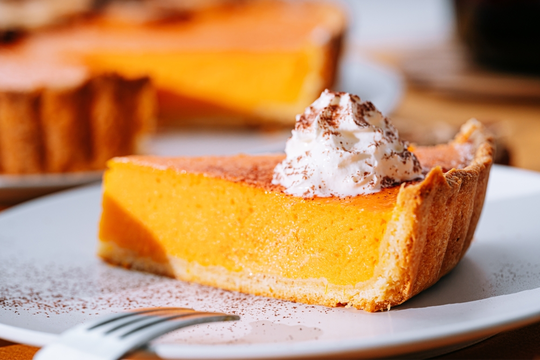Utilize Comfort Foods Creatively During the Holidays
By AccentCare
As the holidays approach, fond memories surrounding traditions often resurface. Many of these traditions likely involve foods that we find so comforting during this time of year. With food in the center of many upcoming traditions, there may be concerns regarding how to incorporate them into your loved one’s holiday. Whether your loved one faces challenges with eating, or they still have their appetite, there are many ways to enjoy the long-standing family traditions this holiday season.
Embracing Tradition: This may be the last holiday with your loved one. They may be able to consume food and beverages without any challenges this holiday season, and if so, cherish the traditional meal together. Take into consideration any requests your loved one expresses; whether it is for a special dish to be made or for them to assist you in the kitchen, enjoy the memories that will be made this holiday season. Consider making your loved one’s secret recipe with them so you can write down the recipe to use during holidays to come. Embrace the traditions that your loved one enjoys this holiday season.
Modifying Comfort Foods: If your loved one has challenges with chewing or swallowing, offering holiday foods in a modified texture will allow them to actively participate in the holiday meals. A speech language pathologist may have evaluated your loved one and recommended the safest diet consistency for them to consume. Following those guidelines for diet texture will allow your loved one to safely enjoy the meals. For example, if your loved has difficulty chewing, providing soft foods, foods diced into small pieces, or foods soaked with gravy can help ease chewing challenges. Your hospice team is here with a plethora of resources to help you navigate modifying food textures.
Comfort Feeds with Comfort Foods: While food is the centerpiece of many holidays, intake typically declines as the patient enters their last few weeks of life. Comfort feedings may occur by providing small amounts of your loved one’s favorite holiday recipes when and if the patient shows interest in them. The food should not be forced for consumption, but rather offered to the patient to provide nostalgia. It should provide sentimental value and a feeling of comfort. An example of this could be a teaspoon of pumpkin pie or sweet potato casserole. During the end of life, patients generally do not feel a sense of hunger, but offering foods with sentimental value can provide a feeling of well-being.
Comforting Smells: If your loved one has shown no interest in consuming food, that is okay. Rather than forcing food, fill the home with the warm smells of the holiday season. Think of the smells that may have filled your loved one’s home during holidays past. Aromas can ignite fond memories. This is a safe way to honor traditions and provide comfort to your loved one.
Non-Food Activities: Your loved one may be receiving nutrition through a tube feeding and shows no interest in comfort feeds but is still able to respond to stimuli. Rather than focus on food, engage your loved one in non-food activities. You may enjoy building wreaths and your loved one may enjoy picking out which ribbon or bow goes on the wreath. Perhaps it’s watching your favorite holiday show or movie together. Moving the focus away from food allows your loved one to fully participate in the activity and provides an opportunity to build more memories together.
There are many ways to honor traditions surrounding food which is meant to provide a feeling of well-being to not only your loved one, but to you as well. Your hospice team is here to provide you and your loved one with comfort as you navigate the holiday season.